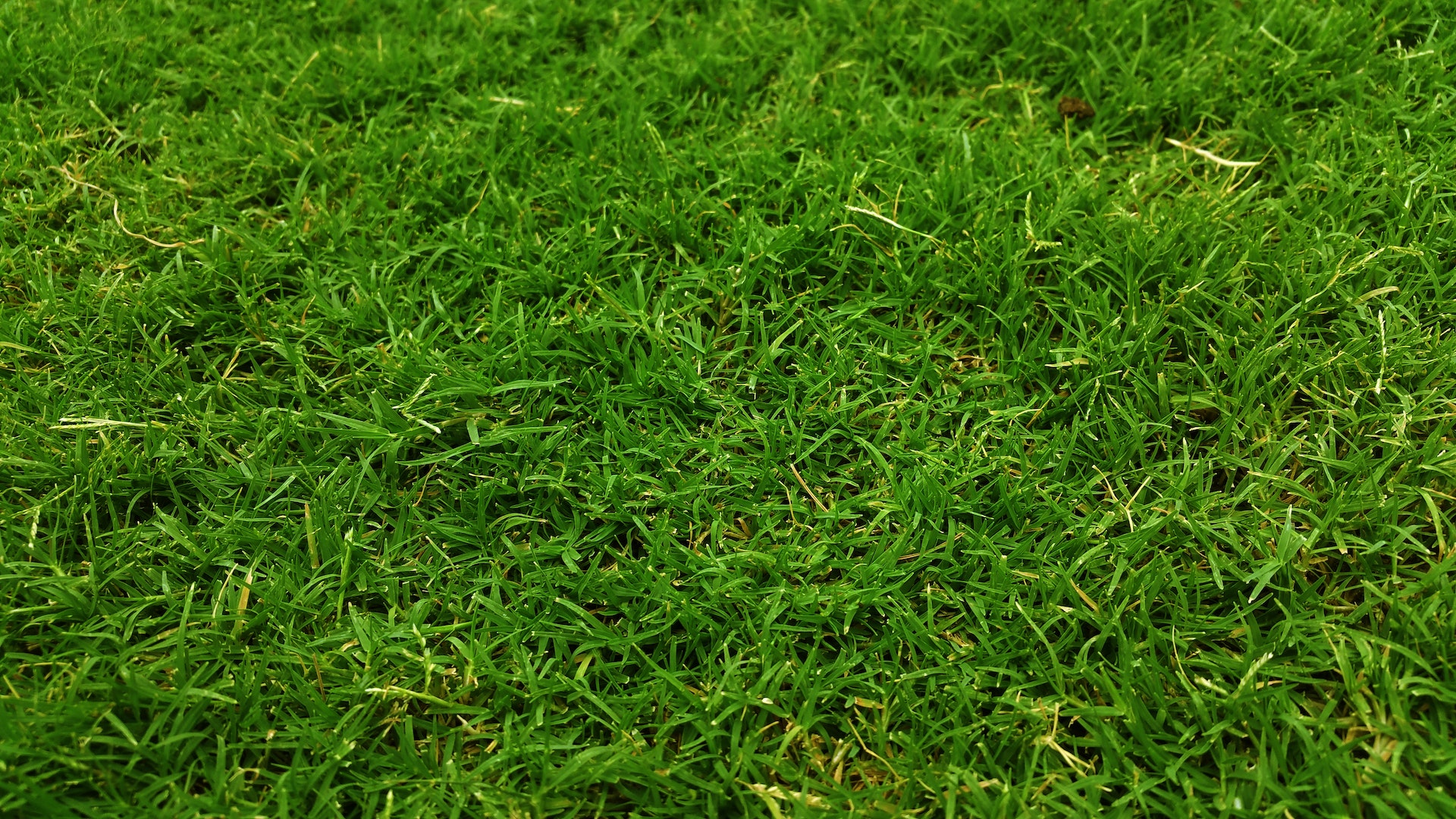Bermuda grass, scientifically known as Cynodon dactylon, is a widely prevalent grass species that can be found in over 100 countries across the globe. Originally from the African continent, this perennial grass has found its way into lawns, golf courses, athletic fields, and even farming lands. Renowned for its extreme resilience and fast growth, Bermuda grass thrives in warm climates, making it a popular choice for many homeowners and turf managers. However, its very qualities of hardiness and proliferation, which make it a favored choice in certain circumstances, can also lead to situations where it’s seen less favorably.
The purpose of this comprehensive blog post is to delve into an interesting question that frequently arises among gardeners, landscapers, and homeowners: Is Bermuda grass a weed? This query may sound simple, but the answer is not quite as straightforward. As we’ll explore in the forthcoming sections, the designation of Bermuda grass as a weed is subject to varying perspectives and depends heavily on its context and use. We aim to provide a balanced analysis, acknowledging the benefits of Bermuda grass while also highlighting the challenges it presents. By the end of this article, you’ll have a well-rounded understanding that will help you make informed decisions regarding Bermuda grass and its role in your outdoor space.
The Origin and Evolution of Bermuda Grass
Brief History of Bermuda Grass
Bermuda grass, or Cynodon dactylon, originated in the savannas of Africa. It was named after Bermuda, a place where it was extensively grown, but the resilient grass quickly spread to various parts of the world. It is a warm-season grass that can withstand high temperatures, making it well suited to tropical and subtropical climates. Early travellers and settlers often inadvertently carried Bermuda grass seeds in their belongings, facilitating its spread around the globe.
How It Spread Across The Globe
The main reason for Bermuda grass’s worldwide dissemination is its exceptional adaptability. It can grow in a variety of soils, from sandy to clay, as long as the location receives ample sunlight. Its tolerance to salinity also allows it to thrive near coastal regions. Additionally, Bermuda grass reproduces both vegetatively, through stolons and rhizomes, and through seed dispersal. This dual method of reproduction contributes significantly to its invasive nature and ability to establish in new regions.
When European settlers arrived in North America, they brought Bermuda grass with them, recognizing its potential as a hardy pasture grass for livestock. Similarly, in Australia and other regions, the grass was introduced for its erosion control capabilities. However, while these initial introductions were deliberate, the subsequent spread of Bermuda grass was often unintentional, resulting from its aggressive growth habit and prolific seed production.
The story of Bermuda grass’s global spread offers the first hint as to why some people might classify it as a weed: its rapid growth and establishment in a variety of environments resemble characteristics often attributed to invasive weed species. As we’ll see in the next sections, this is a perspective shared by many but not all, depending on the specific use and management of Bermuda grass.
Understanding the Classification of Weeds
Before we delve into whether Bermuda grass is a weed, it’s crucial to understand what a weed actually is. At the most basic level, a weed is often defined as “a plant in the wrong place.” This seemingly simple definition belies the complexity of how we classify and perceive weeds. Essentially, whether a plant is considered a weed or not depends heavily on the context and its interactions with the environment, other plants, and human activities.
Weeds can be categorized in many ways, including by their life cycle (annual, biennial, or perennial), the type of habitat they invade (agricultural, natural, or urban), or their origin (native or non-native). Furthermore, some weeds are merely nuisances, while others are classified as invasive, meaning they pose significant threats to the ecosystems they inhabit by out-competing native species and altering habitats.
Determining if a plant is a weed involves evaluating its characteristics and impacts. Some common criteria include:
1. Invasiveness: If a plant proliferates rapidly and outcompetes other plants for resources, it’s often considered a weed. Invasive plants typically have a high reproduction rate and can quickly colonize new areas.
2. Impact on human activities: Plants that interfere with human activities, such as farming, landscaping, or property maintenance, are frequently classified as weeds.
3. Harmful qualities: Some plants are considered weeds because they are toxic or harmful to humans, animals, or other plants.
4. Persistence and difficulty of control: Plants that are challenging to control or eradicate, and that persist despite efforts to remove them, often fall into the weed category.
In the next section, we will apply these criteria to Bermuda grass and examine it from various perspectives to address our central question: Is Bermuda grass a weed?
Is Bermuda Grass a Weed?
From the agricultural point of view, the classification of Bermuda grass swings between beneficial and problematic. Its hardiness and rapid growth make it an excellent pasture grass for grazing animals. It withstands heavy grazing pressure and bounces back quickly, providing a sustainable source of feed for livestock. However, when Bermuda grass invades crop fields, it becomes a competitive weed, difficult to control and capable of reducing crop yields. Hence, within the realm of agriculture, Bermuda grass can be both a valued resource and a troublesome weed, depending on the context.
In landscaping, Bermuda grass has a similarly dualistic nature. Its dense, fast-growing habit makes it an attractive choice for lawns, playing fields, and golf courses, especially in warm climates where other grass species may struggle. It creates a durable, wear-resistant turf that stands up well to heavy foot traffic. However, its aggressive growth can be a disadvantage in flower beds and mixed-use landscapes, where Bermuda grass can quickly overrun other plants. It can be particularly challenging to eradicate once established, earning it the status of a weed in many gardeners’ eyes.
From an ecological standpoint, Bermuda grass is often considered invasive, particularly in areas where it is non-native. It can outcompete local flora, reduce biodiversity, and alter habitats. It’s especially problematic in natural areas and reserves, where it can quickly spread and take over, making it hard for native species to survive. Therefore, environmentalists often regard Bermuda grass as a weed or even an invasive species due to its potential to harm local ecosystems.
In conclusion, whether Bermuda grass is seen as a weed often depends on one’s perspective and the specific situation. While it can undoubtedly be beneficial in some contexts, it also poses significant challenges in others, and these will be explored further in the next sections.
Benefits of Bermuda Grass
Survival in Harsh Climates
One of the key strengths of Bermuda grass is its exceptional resilience. It thrives in warm, sunny climates and can survive in temperatures up to 110 degrees Fahrenheit, making it a preferred choice for areas prone to heatwaves and droughts. Its deep root system enables it to access water from deep within the soil, helping it to withstand dry spells better than many other types of grass.
Erosion Control & Soil Improvement
Bermuda grass has a robust root system and dense above-ground growth, which makes it highly effective at controlling soil erosion. It’s often planted in areas prone to erosion, like riverbanks, steep slopes, and overused agricultural lands to help stabilize the soil. The grass’s dense network of stolons and rhizomes binds the soil together, reducing the risk of erosion from wind or water.
Sports and Recreational Uses
Thanks to its dense and uniform growth, Bermuda grass creates a perfect playing surface for many outdoor sports. It is commonly used in golf courses, football fields, and baseball diamonds due to its ability to withstand heavy foot traffic and its quick recovery from damage. Additionally, its dense turf is visually appealing, adding aesthetic value to landscapes and recreational spaces.
In conclusion, Bermuda grass, despite its potential drawbacks, offers a variety of benefits that make it an asset in specific applications. Whether it’s creating an ideal surface for a backyard game of soccer, protecting soil from erosion, or standing up to the harshest of summer heatwaves, Bermuda grass proves to be more than a possible weed. In the next section, we’ll balance these benefits by exploring the challenges Bermuda grass can pose.
Challenges with Bermuda Grass
Invasive Nature
While the rapid growth of Bermuda grass can be an advantage in certain situations, it can also be a significant problem. Bermuda grass is highly aggressive and can quickly take over lawns, gardens, and natural areas, leaving little room for other plants. Its fast spread can lead to a loss of plant diversity and potentially upset the balance of local ecosystems.
Grass Control & Removal
Bermuda grass is notoriously hard to control and eliminate once it’s established. Its deep root system and ability to grow back from small pieces of root or stem make it resilient to many common weed control methods. Even after successful removal, it can re-establish from seeds or unnoticed root fragments, making it a persistent and recurring problem for gardeners and land managers.
Impact on Biodiversity and Other Plant Species
The aggressive growth and spread of Bermuda grass can lead to a reduction in biodiversity, particularly in areas where it is not a native species. It can outcompete and displace native plants, altering habitats and impacting wildlife that rely on those plants for food and shelter. Its dense growth can also prevent other desirable plants in lawns or gardens from getting the resources they need to thrive.
In conclusion, while Bermuda grass has its benefits, it’s crucial to acknowledge the challenges it poses. Whether it’s the difficulty in controlling its spread, its impact on other plants and biodiversity, or the simple stubbornness of its persistence, these factors contribute to why many consider Bermuda grass a weed. It’s these challenges that often necessitate prevention and control measures, which we will discuss in the next section.
Dealing with Bermuda Grass: Prevention and Control Measures
Tips for Preventing Bermuda Grass Spread
Prevention is always better than cure when it comes to managing potential weeds like Bermuda grass. The first step in prevention is to maintain a healthy, well-cared-for lawn or garden that can outcompete Bermuda grass. Regular mowing, correct watering practices, and appropriate fertilization will help establish strong, vigorous plants that can withstand Bermuda grass invasion. Additionally, if Bermuda grass is present in nearby areas, a physical barrier installed in the soil around the garden or lawn can help prevent the grass’s underground runners from invading.
Methods for Controlling and Eliminating Bermuda Grass
If Bermuda grass has already established itself in your lawn or garden, a combination of cultural, physical, and chemical methods is usually the most effective way to control it.
1. Cultural control involves practices like regular mowing and maintaining healthy, competitive plants to limit Bermuda grass’s ability to establish and spread.
2. Physical control can be labor-intensive and includes manually removing Bermuda grass and its roots or using tools to cut or till the grass. It’s important to note that all pieces of the grass must be removed as it can regrow from even tiny fragments.
3. Chemical control involves the use of herbicides. Selective herbicides that target Bermuda grass without harming desired plants can be used, but care should be taken to apply them properly and limit potential harm to the environment.
How To Choose Your Control Method
Choosing the right method to control Bermuda grass depends on several factors including the extent of the infestation, the type of plants surrounding it, the cost and resources available, and the potential environmental impact. For instance, chemical control might be effective, but it can harm non-target species and pollute water sources. It’s also generally more costly than cultural or physical control methods. Therefore, an integrated approach that combines various methods is often the most effective and sustainable way to manage Bermuda grass.
Managing Bermuda grass can be a challenge, but with the right knowledge and tools, it can be done effectively. The key is to be persistent and consistent in your control efforts. It’s also important to keep in mind that while Bermuda grass does present certain challenges, it also offers benefits, as highlighted in earlier sections. Understanding and weighing these pros and cons is crucial to making informed decisions about Bermuda grass management.
Bermuda Grass: Friend or Foe?
Having examined Bermuda grass from multiple perspectives, it’s clear that the question of whether it’s a weed isn’t black-and-white. The classification of Bermuda grass largely depends on the context in which it is growing and the viewpoint of the individual assessing it.
From a positive perspective, Bermuda grass’s fast growth, durability, and resilience to harsh conditions make it a preferred choice for many uses, including pastures, lawns, sports fields, and erosion control. However, these same attributes can also make Bermuda grass a menace when it invades unwanted areas, where its invasiveness, aggressive growth, and resistance to control methods earn it the classification of a weed.
Understanding these diverse perspectives on Bermuda grass can help inform decisions about its management. Whether it’s considered a valuable plant or a troublesome weed will largely depend on an individual’s specific needs, preferences, and environmental concerns.
Conclusion
Bermuda grass is a fascinating plant. Its resilience, adaptability, and vigorous growth make it a hero in some contexts and a villain in others. Its story underscores the complexity of how we define and perceive weeds, reminding us that one man’s weed may be another man’s preferred grass.
Whether you view Bermuda grass as a friend or a foe, understanding its characteristics, benefits, and challenges will empower you to better manage it in your own environment. Remember, successful management of Bermuda grass, like any plant, requires knowledge, persistence, and a bit of patience. Armed with the information provided in this blog post, you are now well-equipped to tackle any Bermuda grass challenges you might face, and to take advantage of its benefits where they fit your needs.
We hope this post has provided a comprehensive answer to the question “Is Bermuda grass a weed?” and has given you new insights and tools to apply in your own interaction with this versatile grass. Remember, the world of plants is complex and full of surprises – what might be a weed today could turn out to be the perfect solution tomorrow!
FAQs about Bermuda Grass
Bermuda grass can be excellent for lawns, particularly in warm climates, thanks to its high tolerance to heat, its dense growth, and its ability to withstand heavy foot traffic. However, keep in mind that it can also be invasive and could require regular maintenance to prevent it from overtaking garden beds and other landscaped areas.
Preventing Bermuda grass from spreading can be accomplished through regular mowing, maintaining healthy plants that can outcompete Bermuda grass, and installing physical barriers in the soil to prevent the grass’s runners from spreading.
Yes, in areas where it is non-native, Bermuda grass can potentially harm local ecosystems by outcompeting native plant species, reducing biodiversity, and altering habitats.
Controlling Bermuda grass often requires a multi-pronged approach, using cultural, physical, and chemical methods. This might include maintaining a healthy lawn to outcompete Bermuda grass, manual removal, or the use of selective herbicides.
References and Additional Resources
For readers looking to delve deeper into the topic of Bermuda grass and weed management, the following resources are recommended:
Integrated Weed Management resources
Weed Science Society of America
By examining a variety of resources and seeking information tailored to your specific conditions, you can make informed decisions about whether to embrace or manage Bermuda grass in your lawn, garden, or landscape.
We value our readers’ experiences and insights and would love to hear your thoughts on Bermuda grass. Is it a hero or villain in your garden? How have you successfully managed it? Do you have any tips or tricks to share with others facing a Bermuda grass invasion? Or perhaps you’ve found a unique use for this resilient grass? Feel free to share your stories and suggestions in the comments section below!
Remember, the best way to learn and grow as gardeners, landscapers, and nature enthusiasts is by sharing and exchanging knowledge. Let’s learn from each other and continue to cultivate our understanding of the complex world of plants!
Please keep the conversation respectful and constructive. We look forward to hearing your thoughts!
(Note: Always consult with a local professional or your local extension service to understand the best practices for your specific region and conditions. The advice given in this blog post is meant to serve as a general guide and may not be suitable for every situation or region.)








